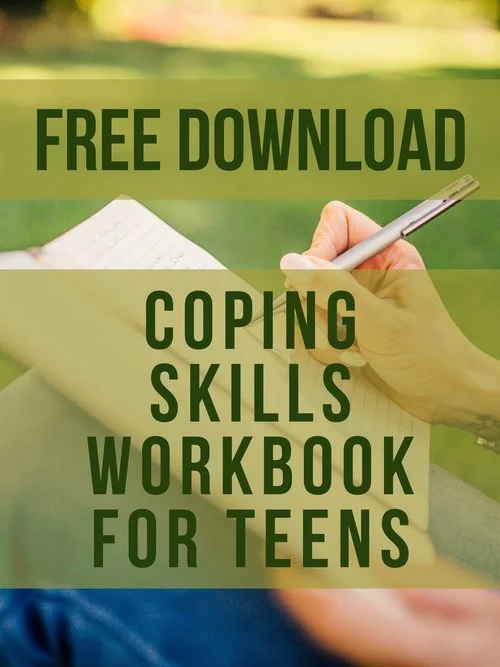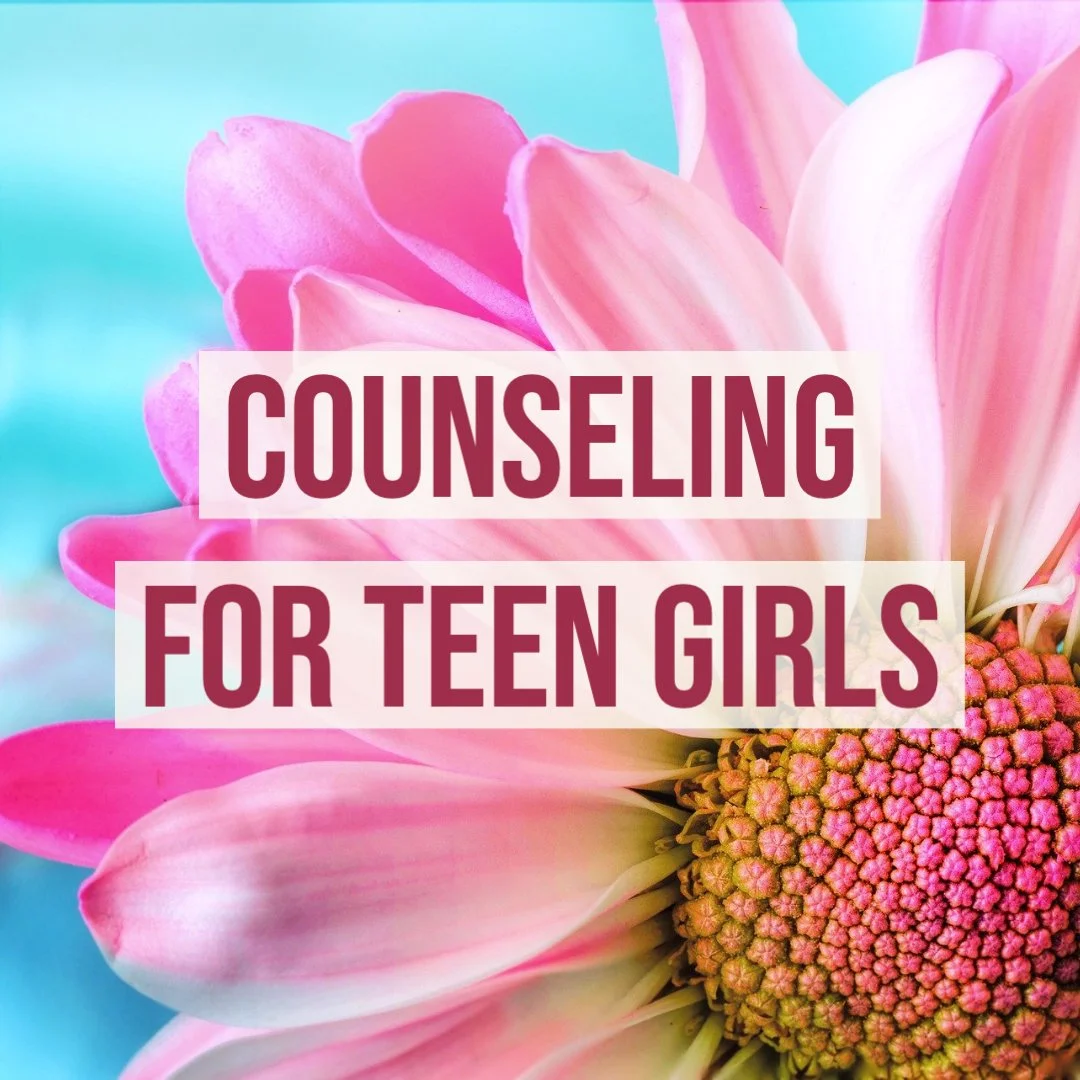
DBT For Teens
Dialectical Behavior Therapy
Dialectical Behavior Therapy (DBT) is a skills-based approach and includes four different sets of skills to help your teen make healthy and effective choices to create a life they love. Ask yourself the following questions to figure out if DBT is a good fit for your teen...
Wondering if a DBT skills group is the right fit for your teen? Answer the questions below and find out!
Does your teen sometimes feel "bad" or "upset" without knowing why?
Does your teen seem as though they are on an emotional roller coaster, with little control over extreme emotions?
Do your teen's emotions often get the best of them, leading them to do something they later regret?
Does your teen tend to judge him/herself or make statements about disliking him/herself?
Does your teen tend to dwell on the negative?
Does your teen try to avoid feelings by shutting down?
Does your teen engage in self-destructive behaviors (like self-harm)?
Does your teen tend to ignore their own needs or happiness, but focus on making others happy?
Do they tend to struggle socially - becoming friends with others who don't treat them fairly, or having very intense relationships quickly?
Do they feel alone and/or misunderstood?
Do they tend to worry excessively?
Do they tend to struggle with standing up for themselves and being assertive?
Do they seem anxious, either caused by a specific trigger or for seemingly no reason?
Are they struggling with communication with family, peers, teachers?
Do they feel hopeless or unsure of whether things can improve?
If you answered YES to at least 3 of these questions, a DBT skills group might be a great way to support your teen.
DBT WILL HELP YOUR TEEN...
Evaluate and understand their emotions so they know how to respond to them instead of reacting and making the situation worse with self-destructive behaviors
Communicate effectively and maintain positive relationships with friends, family and teachers when intense emotions make relating to others in a healthy way challenging
Gain confidence to ask for help when life gets overwhelming and to say "no" to others when peer pressure becomes too intense
Discover how to mindfully and fully enjoy each moment of the teen years, even when the school work has piled up and the future is one leap away... because learning to be happy and form good habits now informs how your teen will enter into the world from this point forward.
Selena Gomez Says Dialectical Behavior Therapy Changed Her Life — What Is It?
What is dialectical behavior therapy?
Dialectal behavior therapy (DBT) is a modified form of cognitive behavioral therapy (CBT) designed to help with emotional instability, which clinicians call "dysregulation"—the inability to manage intense emotions, depression, and anxiety. Dysregulation leads to impulsive, self-destructive, or self-harming behaviors. The goal of DBT is to teach individuals techniques to help them understand their emotions without judgment—the mindfulness component—and also to give them skills and techniques to manage those emotions and change behaviors in ways that will make their lives better. DBT was invented by Dr. Marsha Linehan, a psychologist, who used her own insights from living successfully with BPD to develop this novel therapy.
WHAT SKILLS ARE TAUGHT IN DBT?
DBT includes four sets of behavioral skills.
Mindfulness
Mindfulness is the capacity to pay attention, non-judgmentally, to the present moment.
It is the foundation for the other skills taught in DBT.
Individuals will learn to accept and tolerate the powerful emotions they feel.
Interpersonal Effectiveness
Includes effective strategies for asking for what one needs, saying no, and coping with interpersonal conflict.
Similar to skills taught in assertiveness and interpersonal problem-solving classes.
Emotion Regulation: DBT recognizes that people with mood issues tend to be emotionally intense; anger, frustration, depression, and anxiety are common.
The Emotion Regulation module skills include:
Increasing mindfulness to current emotions
Identifying and labeling emotions
Identifying obstacles to changing emotions
Reducing vulnerability
Increasing positive emotional events
Taking opposite action
Applying distress tolerance techniques
Distress Tolerance: Many current approaches to mental health treatment focus on the aftermath of distressing events and circumstances. DBT supports accepting, finding meaning for, and tolerating distress in the moment.
DBT emphasizes learning to bear pain skillfully.
Distress Tolerance skills constitute a natural development from mindfulness skills.
They have to do with the ability to accept, in a non-evaluative and non-judgmental fashion, both oneself and the current situation. This does not mean that it is one of approval or resignation.
The goal is to become capable of calmly recognizing negative situations and their impact, rather than becoming overwhelmed or hiding from them. This allows the individual to make wise decisions about whether and how to take action, rather than falling into destructive behaviors.
Each of the four modules concentrates on a different strategy to support self-awareness and emotional skills. Through the modules, clients can develop techniques to increase awareness of their personal triggers and responses, and the understanding to accept and manage them.
What is the DIFFERENCE between cbt and dBT?
DBT differs from traditional CBT (Cognitive Behavioral Therapy) in its emphasis on validation—a powerful tool whereby the therapist and the patient work on “accepting” uncomfortable thoughts, feelings and behaviors rather than struggling with them. Once an identified thought, emotion or behavior has been validated, the process of change no longer appears impossible, and the goals of gradual transformation become reality. The term dialectics refers to the therapist’s goal of establishing a balance between acceptance and change and effectively integrating these two fundamental principles of successful therapy. DBT also focuses on the development of coping skills—specific behavioral techniques used to combat the disabling symptoms of mental illness.
As part of the skills-based element of DBT, emphasis is often placed on the development of mindfulness practice and other relaxation techniques. Mindfulness has its roots in Eastern meditation practices (e.g., yoga) and teaches individuals to become increasingly conscious of their thoughts and feelings through observation of bodily sensations. Through this practice, an individual develops the ability to accept distressing thoughts without self- criticism and to tolerate self-destructive urges (e.g., the desire to cut oneself) without acting upon them. Deep breathing and progressive muscle relaxation are examples of specific mindfulness techniques. People in DBT will frequently be asked to use their “wise mind” to help them make better choices.
Like CBT, DBT can involve the use of “homework” in between sessions. A common exercise is the use of diary cards or journaling for individuals to track their progress by noting the presence of symptoms as well as successes.
I’m interested in DBT skills for teens
FREE COPING SKILLS WORKBOOK FOR TEENS!
Download the Coping Skills Workbook For Teens and help your teen get a head start for setting them up for success with practical tools for decreasing their stress level, increasing their self-confidence, and building self-esteem!
Copyright ©2019. All Rights Reserved For Kelly Counseling And Coaching
Terms & Conditions / Privacy Policy / Disclaimer




